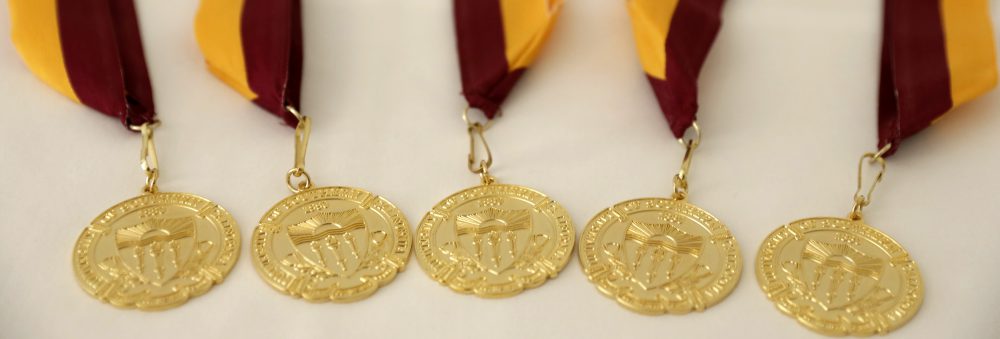From the “Badges” series…
New Research: Getting started
By Adam Feinman
There are three questions I want to briefly address about being a new graduate student:
-
How do you choose an advisor/lab?
-
How do you develop original ideas or projects?
-
In particular, how do you develop a dissertation?
Each of these questions could be a book in and of themselves, so I’m just going to throw out some ideas and a story.
Choosing an advisor is an extremely personal process, and there are many factors to consider. In my opinion though, the most important factor is making sure you can have a positive relationship with your advisor. I mean, competence and success are crucial as well, but those are necessary conditions. Once you get past that, being able to click with someone should be a deciding factor. This inherently makes this choice extremely personal and difficult to give advice about. No advisor or lab group is perfect, but you need to feel like you belong. “Impostor syndrome” is a well-characterized phenomenon, and it can kill your career. Better to avoid it by feeling good about the people you work with. (See in my previous post why I don’t think unfamiliar research is a bad thing.)
Once you select an advisor and have an idea of research areas you are interested in, the next major hurdle in the process is actually identifying research questions that haven’t been addressed yet. This is challenging in the best of circumstances. Therefore, the path to good research questions always begins with the infamous literature search.
The girth of academic literature can be an overwhelming ocean to brave, but fear not. There are often lots of good web resources that explain simply the concepts you need to know to get started, and every lab has at least some people (hopefully, but not necessarily, including your advisor) who can and will field your questions.
While the Internet and Google Scholar have simplified the search process significantly, you do need to jump in and start reading at some point. Here are a few tips and tricks I’ve developed or heard over the last few years:
-
You need to have a list of keywords. They should include more general words, but there is a trade-off between specificity and the number of things that will come up in your search.
-
Never read a paper without reading the abstract first! Abstracts will tell you a lot about a project. Often, you don’t even need to read the paper. Sometimes the abstract will tell you the paper is irrelevant to you, and occasionally, the abstract will give you all the information you need.
-
Use citations and references. Every paper has a list of references, and those papers’ abstracts are worth browsing. Also, when you search Google Scholar, below the link to the paper is a “cited by” link that displays all the papers that cited the one you’re looking at as a reference.
-
Search dynamically. Keep updating your keyword list, and don’t stop reading papers just because you have a project going.
Once you get the hang of it, the trick will be selecting a Ph.D.-size chunk of research. In the sciences, this is usually much smaller than you think initially. That was Ryan’s experience.
“Once I got through my literature search, I thought that I had some good projects lined up. But as I began to design the first experiment, it became apparent that just the first project could be a dissertation. Over the course of my graduate work, my advisor and I have changed the shape of my dissertation and narrowed the focus many times before it became manageable. But I’m really happy now with how it’s shaping up.”
I’ve found this to be fairly characteristic of grad school research. Don’t feel bad about progress to graduation being a dynamic process with some degree of flux. Your dissertation only has to be fixed when you turn it in!
I’m an engineer and a scientist, so most of the stories I have to draw on come from those fields. If you are reading this and have a different spin (professional school, humanities, etc.), please email me at feinman@usc.edu, I would love to hear your experiences! Anonymity will be protected.
